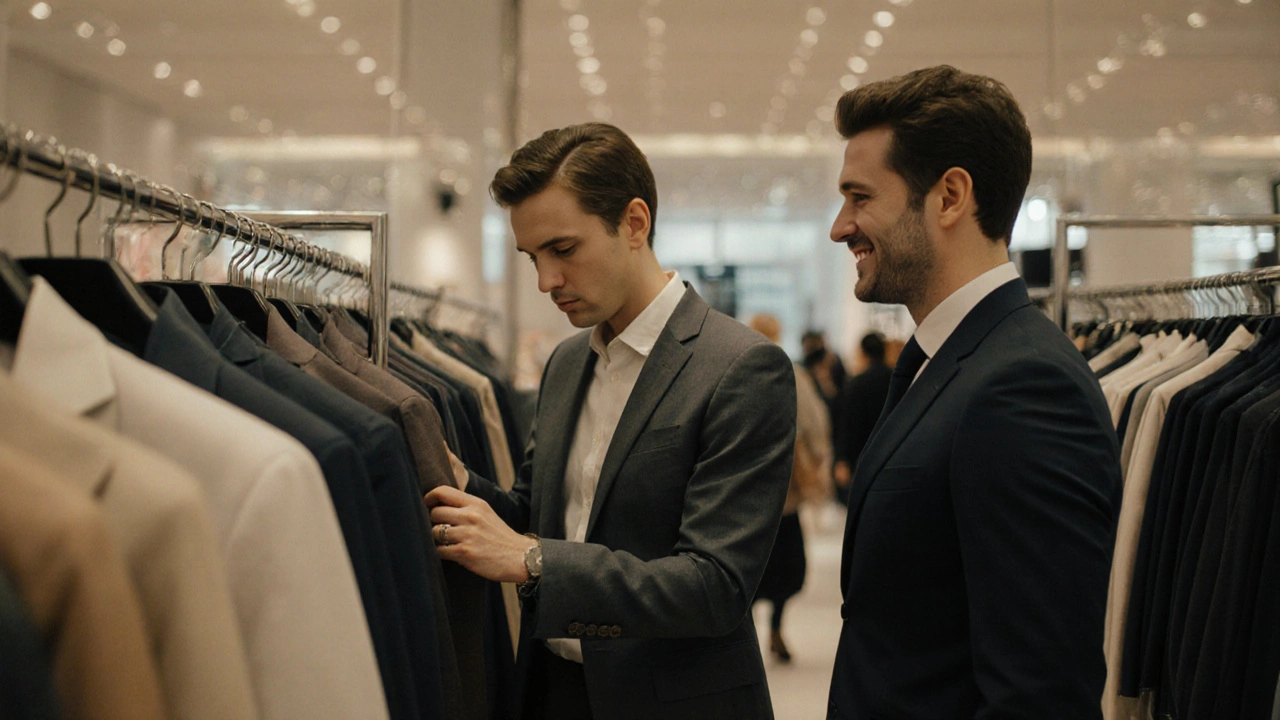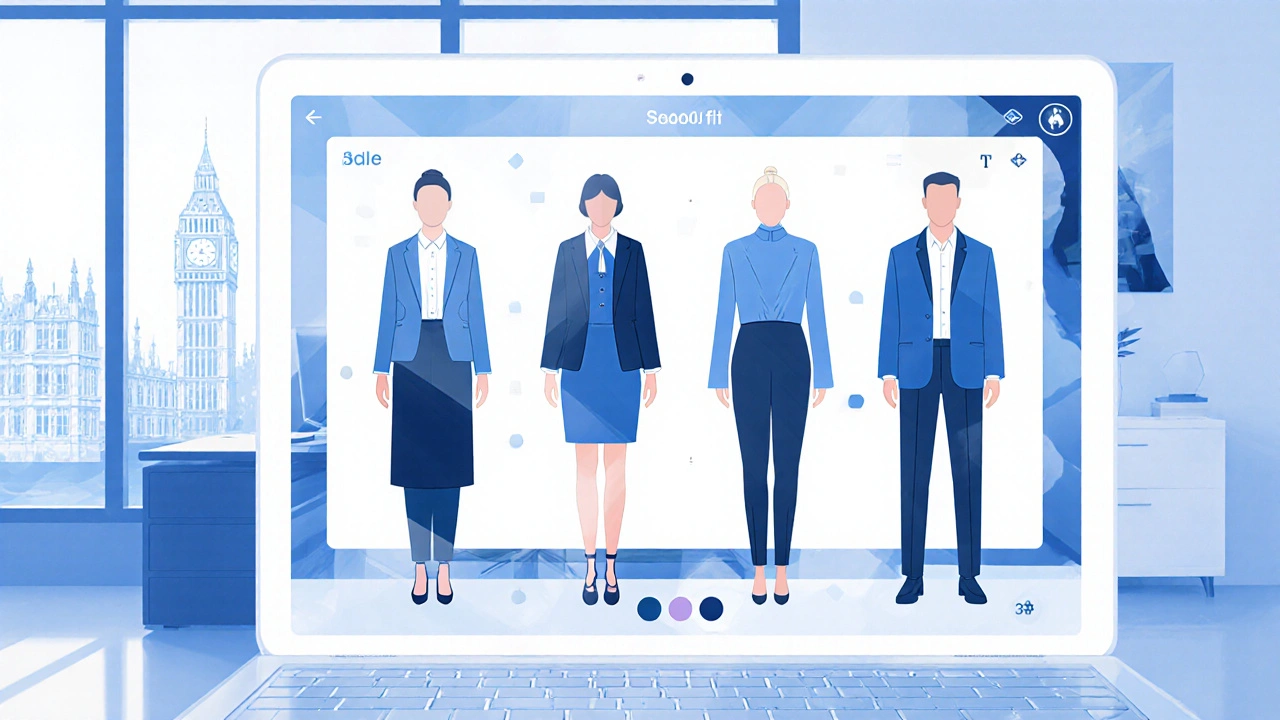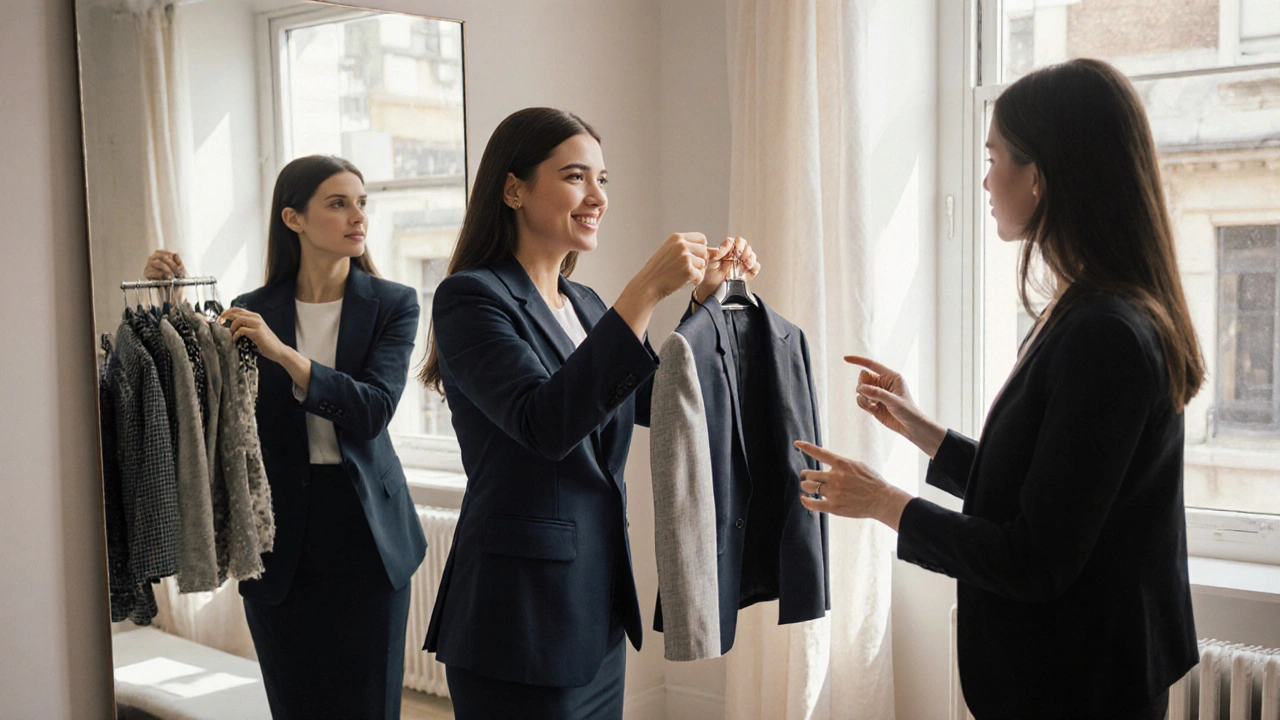Living in London doesn’t mean you have to spend hours wandering through Oxford Street or scrolling through endless online stores just to find clothes that fit. A personal shopper in London can save you time, reduce stress, and even help you look more expensive than you actually are. But how do you actually book one? And is it worth the cost?
What Exactly Does a Personal Shopper Do?
A personal shopper in London isn’t just someone who carries your bags. They’re style advisors, body experts, and time-savers rolled into one. They learn your size, your favorite colors, your lifestyle, and even your budget-then they go out and find pieces that match all of it.
Some work with high-end boutiques in Mayfair. Others shop at high-street stores like Zara, Topshop, or <strong>Selfridges</strong>. Some even do virtual consultations over Zoom if you’re not in the city. They don’t just pick out outfits-they build wardrobes. Think of them as your personal fashion architect.
One client I spoke with, a lawyer in Canary Wharf, used to spend three hours every weekend trying to pick outfits for work. After hiring a personal shopper, she cut that down to 20 minutes a week. Her closet went from 70% unworn clothes to 90% worn regularly. That’s the kind of change you get.
How Much Does It Cost to Hire a Personal Shopper in London?
Prices vary wildly depending on experience, location, and service type. Here’s what you’re likely to pay in late 2025:
- Hourly rate: £75-£150/hour. Most beginners charge around £75-£95. Top-tier stylists with clients like influencers or corporate execs charge £120-£150.
- Half-day package (4 hours): £300-£500. This usually includes a style consultation, shopping trip, and outfit recommendations.
- Full-day package (6-8 hours): £600-£1,000. Includes wardrobe audit, shopping at multiple stores, and a digital lookbook.
- Monthly retainer: £800-£2,000/month. For busy professionals who want ongoing updates-seasonal refreshes, event outfits, or wardrobe management.
Some services include a commission on purchases (5-15%), which can lower your upfront cost. Others charge a flat fee regardless of what you buy. Always ask: Do they get paid based on what I spend? If yes, make sure they’re transparent about it.
One thing to watch out for: companies that advertise “free styling” but push you to buy expensive items. Good personal shoppers care more about your needs than their commission.
Where to Find a Reliable Personal Shopper in London
You can’t just Google “personal shopper London” and pick the first result. Here’s how to find someone who actually knows what they’re doing:
- Check platforms like StyleSeat or Thumbtack-these let you see verified reviews, photos of past work, and pricing upfront.
- Ask at luxury department stores-<strong>Harrods</strong>, <strong>Liberty</strong>, and <strong>Selfridges</strong> often have in-house stylists you can book through their customer service desks.
- Look on Instagram-search #LondonPersonalShopper or #LondonStyleConsultant. Real professionals post before-and-after shots, client testimonials, and actual shopping trips.
- Ask for referrals-if you know someone who works in fashion, PR, or finance in London, they’ve probably used one. Ask them who they trust.
Pro tip: Look for someone who’s certified by the British Fashion Council or trained at a school like the London College of Fashion. It doesn’t guarantee perfection, but it means they’ve been taught real style principles-not just how to match colors from Pinterest.

What You Get Beyond the Clothes
Most people think personal shopping is about buying more stuff. It’s not. It’s about buying the right stuff.
Here’s what you actually gain:
- Time savings: The average Londoner spends 14 hours a month shopping. A personal shopper cuts that to under 3.
- Confidence boost: When you know your clothes fit and flatter your body, you walk differently. One client told me she started speaking up in meetings after her first wardrobe refresh.
- Money saved long-term: People who use personal shoppers buy fewer, higher-quality items. They stop buying trends that don’t suit them. One woman I worked with saved £2,300 in a year by stopping impulse buys.
- Access to exclusive items: Some stylists get early access to sales, private viewings, or limited-edition pieces before they hit the floor.
- Body awareness: Many don’t know their correct size. A good shopper will measure you, note your proportions, and tell you what silhouettes work. No more guessing.
Who Should Hire a Personal Shopper?
You don’t need to be rich to benefit. Here are the people who get the most value:
- Professionals who dress for work-lawyers, consultants, bankers. They need to look polished but don’t have time to shop.
- New moms or people who’ve lost/gained weight-your body changes, and your wardrobe should too.
- People moving to London-the style here is different from other UK cities. A shopper can help you adapt fast.
- Anyone tired of shopping stress-if you hate browsing, hate returns, or hate feeling like you never have anything to wear, this is for you.
It’s not for people who want to spend thousands on designer labels. It’s for people who want to spend smarter.
What to Expect on Your First Appointment
Most personal shoppers start with a 30-60 minute consultation-either in person or online. Here’s what happens:
- Style interview: They ask about your job, social life, favorite colors, and what you hate wearing.
- Body assessment: They take measurements and note proportions-like if your shoulders are broader than your hips, or if you have a short torso.
- Wardrobe review: You show them what’s in your closet. They’ll tell you what to keep, donate, or toss.
- Budget talk: They don’t assume you want to spend £500 on a coat. They work within your limits.
- Plan created: You leave with a list of stores, items to try, and a timeline for your shopping trip.
After that, the shopping happens. You can go with them, or they can shop solo and send you photos to approve. Some even use apps to show you 3D renders of how outfits will look on you.

Red Flags to Watch Out For
Not everyone who calls themselves a personal shopper is worth your money. Here’s what to avoid:
- They push luxury brands-if they only mention Gucci or Chanel and ignore high-street options, they’re not listening to you.
- No portfolio-if they can’t show you real before-and-after photos of clients, walk away.
- They don’t ask about your budget-a good shopper cares about your limits, not their commission.
- No contract or clear pricing-always get a written outline of what’s included and how much you’ll pay.
- They’re always “booked out” for weeks-if they’re that in demand, they’re likely overpriced or underqualified.
Final Thoughts: Is It Worth It?
Yes-if you value your time, your confidence, and your money.
A personal shopper in London isn’t a luxury. It’s a productivity tool. Think of it like hiring a personal trainer-you’re paying for expertise so you don’t waste energy guessing what works. The upfront cost? It pays for itself in fewer returns, less stress, and outfits that actually make you feel powerful.
Start small. Book a half-day session. Try one shopping trip. See how it feels. You might be surprised how much better you look-and how much lighter your wallet feels when you stop buying things that don’t suit you.
How much does a personal shopper cost in London?
Hourly rates range from £75 to £150. Half-day packages cost £300-£500, and full-day sessions run £600-£1,000. Monthly retainers start at £800. Some charge commissions on purchases, so always ask how they’re paid.
Can I hire a personal shopper online?
Yes. Many personal shoppers offer virtual consultations via Zoom or video call. They’ll ask you to send photos of your current wardrobe, body measurements, and style preferences. Then they’ll send you curated shopping lists and links to items that fit your body and budget.
Do personal shoppers only shop at luxury stores?
No. Good personal shoppers shop wherever you shop-whether it’s <strong>Selfridges</strong>, <strong>Zara</strong>, <strong>Marks & Spencer</strong>, or even eBay. Their job is to find what works for you, not to push expensive brands.
What if I don’t like what they pick?
You’re in control. A good shopper will show you options and ask for your feedback before buying anything. You can say no to anything. No one forces purchases.
How do I know if a personal shopper is legit?
Check reviews on StyleSeat or Google, ask for client photos, and see if they’re transparent about pricing. Avoid anyone who doesn’t ask about your budget or refuses to show past work. Certification from the British Fashion Council or London College of Fashion is a good sign.
Next Steps
Ready to try it? Start by booking a 60-minute consultation. Most personal shoppers offer a free 15-minute intro call to see if you’re a good fit. Use that time to ask: “What’s the first thing you’d change in my wardrobe?” Their answer will tell you everything you need to know.
And remember: this isn’t about spending more. It’s about wearing less-but better.
